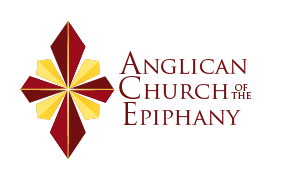On Wednesday, June 24, many Christian denominations celebrate the Nativity of John the Baptist. This event is described in Chapter 24 of Luke’s Gospel.
Zechariah, a Jewish Priest, and his wife, Elizabeth, had no children and were beyond the normal age of childbearing. While serving in the Temple in Jerusalem, the Archangel Gabriel appears to Zechariah and tells him that he and his wife will, despite their old age, give birth to a child, and he is to be given the name “John.” When Zechariah refuses to believe the Angel’s message, he becomes unable to speak until the baby’s birth, and when he is asked to name the child, he writes “John.” He then recovers his speech and then is given the gift of prophecy and foretells the ministry of Jesus in the following canticle:
Blessed be the Lord, the God of Israel;
he has come to his people and set them free.
He has raised up for us a mighty savior,
born of the house of his servant David.
Through his holy prophets he promised of old
that he would save us from our enemies,
from the hands of all who hate us.
He promised to show mercy to our fathers
and to remember his holy covenant.
This was the oath he swore to our father Abraham:
to set us free from the hands of our enemies,
free to worship him without fear,
holy and righteous in his sight all the days of our life.
You, my child, shall be called the prophet of the Most High;
for you will go before the Lord to prepare his way,
to give his people knowledge of salvation
by the forgiveness of their sins.
In the tender compassion of our God
the dawn from on high shall break upon us,
to shine on those who dwell in darkness and the shadow of death,
and to guide our feet into the way of peace.
Elizabeth, as the Bible reveals, is the cousin of the Virgin Mary, and is told by the Angel Gabriel that her cousin is in her sixth month of pregnancy. Therefore, the Feast of the Nativity of John the Baptist is directly connected with the church’s anticipation of the coming Feast of Christmas.
This feast is kept in the Roman Catholic, Anglican, and Lutheran Churches while often ignored or given less prominence by reformed and free churches. The color used for church paraments and vestments is while, which indicates a celebratory mood.
John the Baptist, of course, is known as one who prepared the way for the ministry of Christ by preaching and baptizing in the wilderness. It was he who announced that Christ was in the world bringing the Kingdom of God to all who were willing to repent and believe His message. As Christians, we are called upon to also proclaim the message of Jesus Christ in both word and action. It is in our imitation of Christ and our love toward others that we are called upon to announce his coming again. As St. Frances supposedly advised, “Preach the Gospel at all times. When necessary, use words.”
Written by Fr. Steve Sterry, Associate Priest at Anglican Church of the Epiphany




